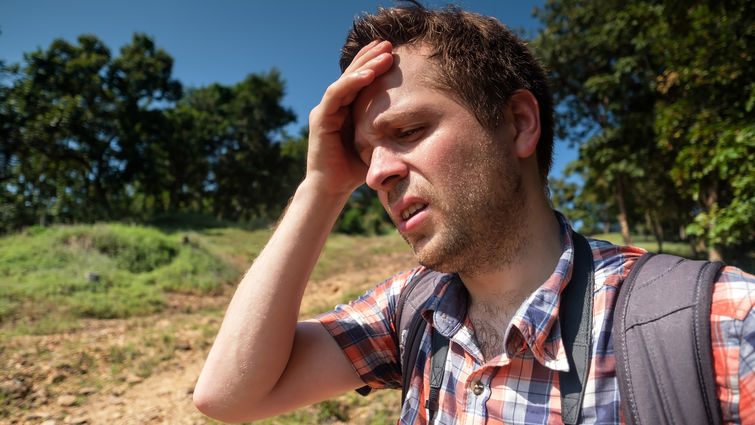
Loma Linda University Health doctors typically see an increasing number of patients affected by heat as outdoor temperatures spike in the Southern California summer. Intense heat in the Inland Empire brings in patients with heat stroke and heat exhaustion, as well as severe sunburns and dehydration. Roger D. Woodruff, MD, chairman of the department of family medicine at Loma Linda University Health offers some strategies on how to stay safe during the summer heat.
Stay hydrated. Carry water or another non-dehydrating drink with you, and keep drinking, even if you don’t feel thirsty. Avoid alcohol and minimize caffeine, which dehydrates the body. Also, avoid extremely salty foods. Excessive salt in your diet can cause dehydration, leaving your body needing extra water.
Slow down. If it’s the mid-day heat, do your best to stay inside, Woodruff says. If you are outside, avoid actions that cause fatigue. If you need to do strenuous activity, try to do it in the morning between 4 a.m. and 7 a.m., which is the coolest part of the day. When exercising, find an air-conditioned gym or a pool instead of walking or running outdoors. Make sure you have electrolytes accessible, which are found in foods such as apples, oranges, celery or carrots and in electrolyte drinks.
Eat light meals and eat more often. Try to eat less food more consistently throughout the day, giving your body a constant source of nutrients without overwhelming it with too much food. Avoid high-protein foods, which can increase your metabolic heat. Instead, eat light and try to eat foods with a greater water content. These foods are easier to digest, using less of your body’s energy.
Stay indoors when possible. If air-conditioning is not available, stay on lower floors, and out of the sunshine, Woodruff says. Heat rises, so lower floors of a building will likely be coolest. If you’re outside, listen to your body. If you start to feel weakness, light-headedness, dizziness or headache, your body might be telling you to get out of the heat.
Wear light, loose clothing. Lightweight, light-colored clothing can help deflect some of the sun’s energy. Loose clothing, hats or umbrellas can also provide some protection and shade, helping you stay cool.
Signs of heat-related illnesses can include nausea, dizziness, flushed or pale skin, heavy sweating and headaches, Woodruff says. If suffering from a heat-related illness, a person should be moved to a cool place, given small sips of cool water and ice packs or cool wet cloths should be applied to the skin. If a person refuses water, vomits or loses consciousness, call 9-1-1 or your local emergency number immediately.
If you or a loved one is showing signs of heat exhaustion, visit your primary care physician by scheduling an appointment online or calling 909-558-6600.
